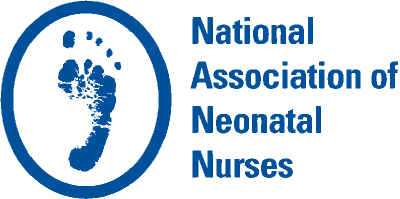Find an APRN Graduate Program to Become a CNS or NP
NANN is pleased to provide this list of graduate programs for advanced practice registered nurses―neonatal clinical nurse specialist (CNS) and nurse practitioner (NP) programs―courtesy of Linkous & Associates now (TEEMA). These nursing education programs are listed below by degree type and state. Please This email address is being protected from spambots. You need JavaScript enabled to view it. about any omitted graduate programs (or closings) so that we can update our list.
CNS Programs
Clinical nurse specialists (CNSs) are advanced practice RNs (APRNs) who typically hold a Master of Science in nursing (MSN) or a Doctor of Nursing practice (DNP) degree with specialized training in a particular area of clinical practice, like neonatal care. Often, they focus on improving patient outcomes through evidence-based practice, education, and consultation. CNSs play a broader role than RNs, including mentoring other nurses, leading quality improvement initiatives, and implementing best practices across healthcare systems.
California
Illinois
North Carolina
Virginia
NP Programs
Nurse practitioners (NPs) are advanced practice registered nurses (APRNs or AP nurses) who hold a Master of Science in nursing (MSN) or a Doctor of Nursing practice (DNP). They must pass a national certification exam specific to their specialty, such as neonatal care. NPs have a broad scope of practice, which can include diagnosing and treating illnesses, prescribing medications, and managing patient care independently. They can perform advanced clinical tasks such as ordering and interpreting diagnostic tests, developing treatment plans, and providing education and counseling to patients and their families.
Canada
Alabama
California
Colorado
Connecticut
Georgia
Illinois
- Rush University, Chicago
- St. Francis Medical Center Peoria, Peoria
- University of Illinois at Chicago, Chicago
Indiana
Kentucky
Louisiana
Maryland
Massachusetts
Michigan
Minnesota
Mississippi
Missouri
Nebraska
New York
North Carolina
Ohio
- University of Cincinnati, Cincinnati
- Case Western Reserve University, Cleveland
- Ohio State University, Columbus
- Wright State University, Dayton
Pennsylvania
- Thomas Jefferson University, Philadelphia
- University of Pennsylvania, Philadelphia
- University of Pittsburgh, Pittsburgh
Tennessee
Texas
- Baylor University, Dallas
- University of Texas at Arlington
- University of Texas at El Paso College of Nursing (UTEP-CON)
- University of Texas Medical Branch, Galveston
Utah
Virginia
Benefits of Graduate Degrees for Neonatal Nurses
Graduate degrees aren’t part NICU nursing requirements, but neonatal nurses who pursue a neonatal CNS or NP degree can gain many benefits:
Advanced expertise: Nurses gain specialized knowledge in neonatal care, enabling them to provide high-quality care.
Career advancement and higher earning potential: These degrees open up opportunities for leadership roles, research positions, and teaching opportunities.
Job satisfaction: Working with newborns and their families can be incredibly rewarding, especially when you are able to make an even more significant impact on your patients’ health and well-being.
Improved patient outcomes: Advanced practice RNs contribute to better health outcomes through specialized care and clinical research.
Balancing NICU nursing responsibilities with a neonatal nursing graduate program requires careful planning and support. Nurses can look for programs with flexible scheduling, such as part-time, evening, or online classes, and create detailed schedules to manage their time effectively. Find out if your employer offers support, like tuition assistance or flexible work hours. It's also important to maintain self-care, lean on family and friends for help, and join study groups for mutual support. Many of your fellow NANN members have successfully earned advanced degrees while meeting NICU nursing requirements, making them a great source of information, inspiration, and guidance throughout the educational journey.

